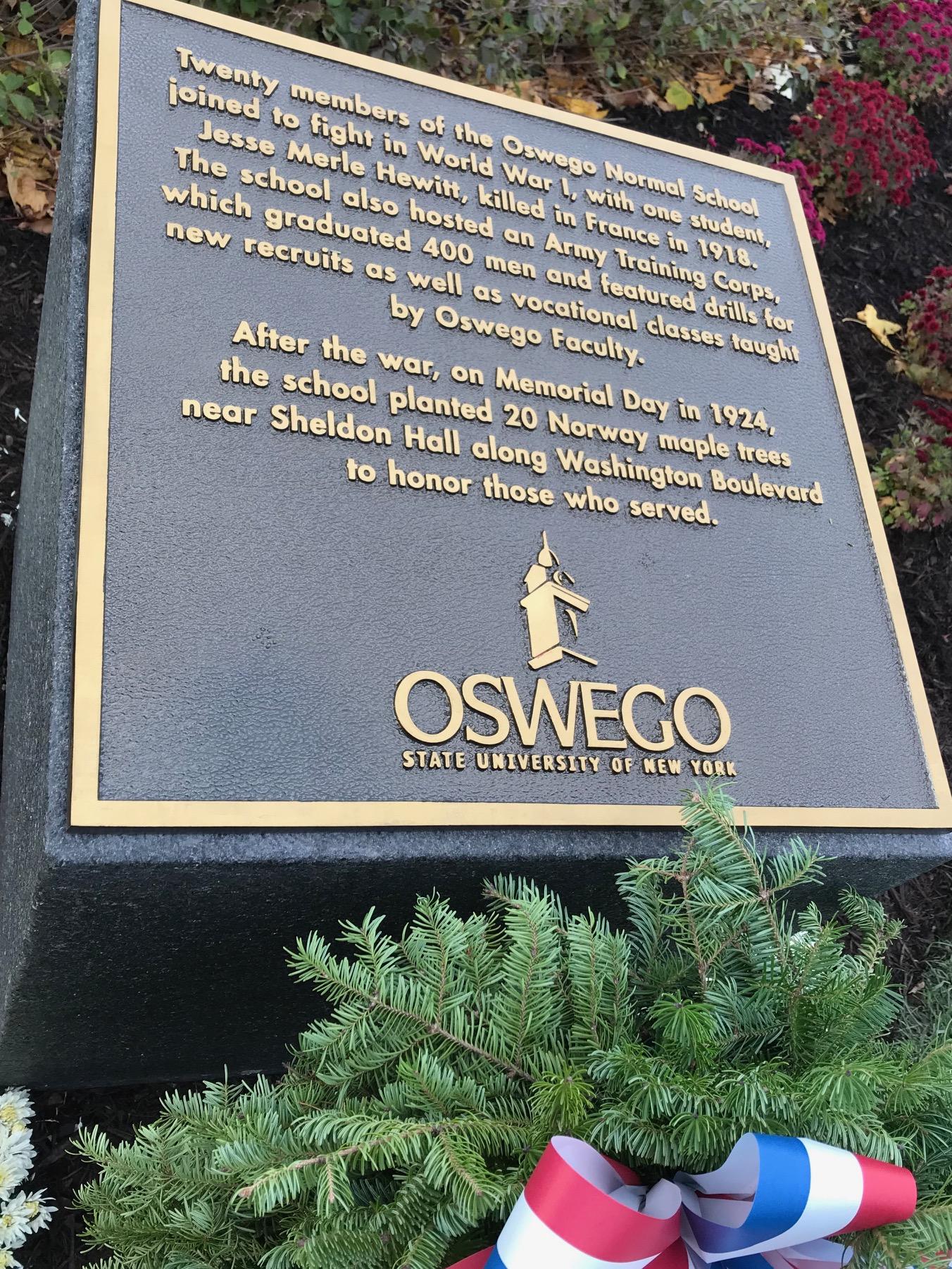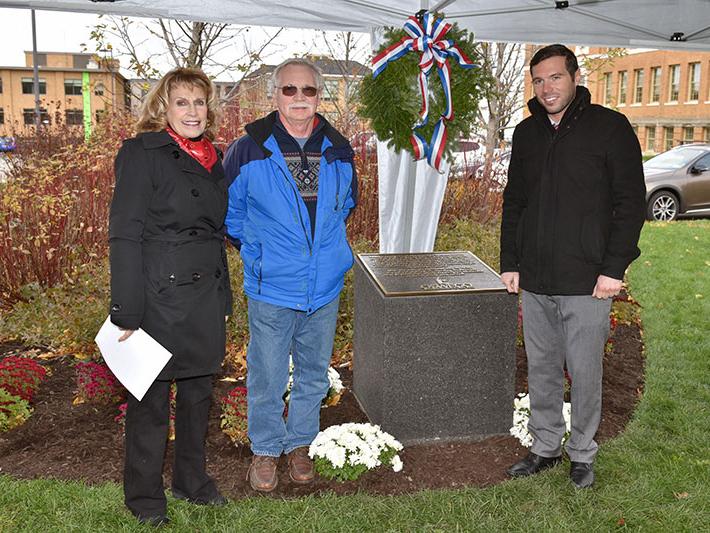Honoring service -- From left, SUNY Oswego President Deborah F. Stanley, Oswego Town Supervisor Richard Kaulfuss and Oswego Mayor Billy Barlow led the Nov. 11 plaque unveiling commemorating the 100th anniversary of the World War I Armistice and honored those who served and continue to serve.
A ceremony on campus on Veterans Day included a plaque dedication in remembrance of the 100th anniversary of the 1918 Armistice that ended World War I and those who served and continue to serve.
The ceremony was led by college President Deborah F. Stanley who, along with Oswego Mayor Billy Barlow and Oswego Town Supervisor Richard Kaulfuss, unveiled the new plaque along Washington Boulevard between Sheldon Hall and the Park Hall lot. Veterans and others from the campus and community attended.
The plaque reads:
Twenty members of the Oswego Normal School joined to fight in World War I, with one student, Jesse Merle Hewitt, killed in France in 1918. The school also hosted an Army Training Corps, which graduated 400 men and featured drills for new recruits as well as vocational classes taught by Oswego faculty.
After the war, on Memorial Day in 1924, the school planted 20 Norway maple trees near Sheldon Hall along Washington Boulevard to honor those who served.
The college then known as the Oswego State Normal School, a teacher training institution, sent 20 men to World War I. One of them didn't return: Jesse Merle Hewitt -- after whom the longtime Hewitt Union was named -- was killed in France.
On Memorial Day 1924, the college remembered those who served by planting 20 Norway maples, one for each who served in the war, along Washington Boulevard outside the main campus building, today known as Sheldon Hall.
During World War I, the campus hosted an Army Training Corps, which graduated 400 men and featured drills for new recruits as well as vocational classes. The corps drilled from 10:30 a.m. to 3 p.m. daily, then the recruits took classes until 5:30. Joseph Park, the luminary longtime director of industrial arts (for whom Park Hall is named), taught the vocational classes.
"The uniform and its significance are not lost on us, and we feel honored that the War Department through its Committee on Special Training selected this spot for the constructive work the school could offer," according to a small pamphlet the Normal School published titled "To The Boys Overseas and Half the Seas Over," sent to those serving in Europe or training to do so. "New causes for rejoicing have been established by your united effort for a great purpose. You may have a feeling of satisfaction and also of humility, but we have a sense of pride in the men of the service whose names are connected with the school."





